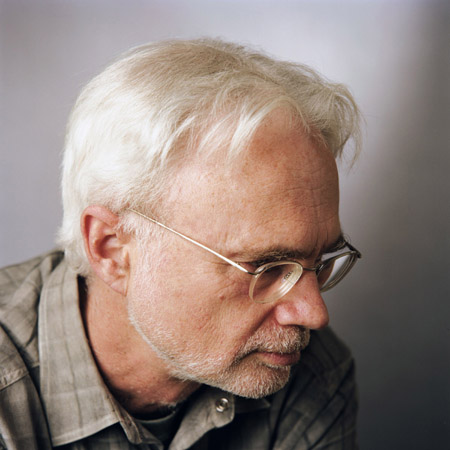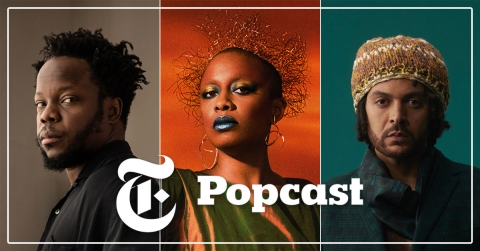John Adams is the subject of a feature article and interview posted today on Salon.com, about Adams's "pretty marvelous book," Hallelujah Junction, and everything from his "bold and blissful work" Harmonielehre to the "electric" new production of Doctor Atomic at the Met. Says Salon: "[A]fter reading Hallelujah Junction, and learning how he consistently challenged himself to go deeper into and wider into music, and himself, it's easy to see how Adams has earned his spot on the A-List of living composers." With Doctor Atomic, writes The Times (UK), the composer "has written his most eclectic and boldest score."
John Adams is the subject of a feature article and interview posted today on Salon.com. In it, Salon's features editor Kevin Berger talks with the composer in an interview, posted as a transcript and in an online video feature, about Adams's "pretty marvelous book," Hallelujah Junction: Composing an American Life, his recently published memoir. The two discuss everything from Adams's earliest works to what Berger calls the "bold and blissful work" Harmonielehre (1984-85) to the "electric" new production of Doctor Atomic at the Met to Adams's most recent opera, A Flowering Tree.
Prefacing the interview, Berger offers this on the new memoir and how it reflects on the composer's life's work:
It's hard to imagine Mahler or Sibelius, the Fin de siècle heavies to whom Adams is sometimes compared, writing about themselves in the spry tones of Hallelujah Junction. It's refreshing and in fact rare for a major composer to write his own story, and do so without blaring the French horns of his ego on every page.
Throughout his book, Adams offers fascinating insights into his acclaimed orchestral works and controversial operas ... [A]fter reading Hallelujah Junction, and learning how he consistently challenged himself to go deeper into and wider into music, and himself, it's easy to see how Adams has earned his spot on the A-List of living composers.
In the course of their discussion, Adams describes the emotional and Mozartean musical inspirations behind his latest opera, A Flowering Tree, the first recording of which was released on Nonesuch earlier this month:
I wanted to create a work, an opera, that was about young people and their growth, falling in and out of love, the intense pain of being in love, the intense pain that we inflict on each other when we haven't reached true maturity ...
The songs in [Mozart's] The Magic Flute are almost as if they are for a show, a musical. I wanted to have that kind of surface simplicity and yet at the same time have deep psychological complexity. That's something I've aimed for throughout my life. I've wanted to be able to say something directly and simply, which is really part of being an American musician.
Read and watch the interview at salon.com.
---
In his review of the Met's new production of the 2005 opera Doctor Atomic, The Times (UK)'s Richard Morrison says "Adams's music is the prime reason to see the opera. Inspired by the bigness of the ideas he is conveying ... the American has written his most eclectic and boldest score."
Morrison points out some of the "striking musical ideas" Adams presents in the opera:
Oppenheimer wrestling with his conscience in an anguished setting of Donne's "Batter my heart, three-person'd God"; or a ravishing duet for him and his wife; or the blistering orchestral unisons that convey Nature being torn apart by mankind's insouciance.
He concludes: "Adams calls this story 'the greatest mythological tale of our time,' and his opera gives dark, disturbing credence to that claim."
Read the review at entertainment.timesonline.co.uk.
- Log in to post comments



